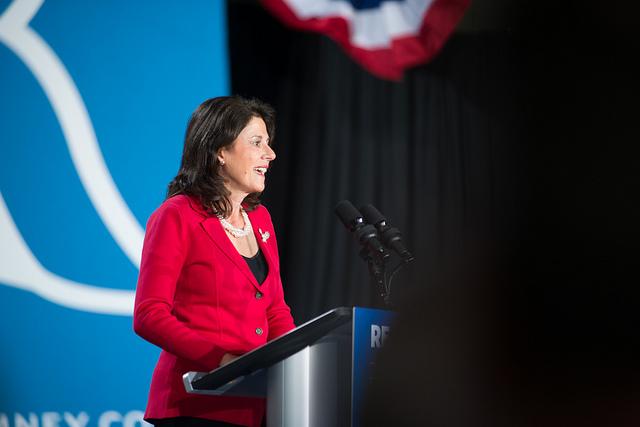Republican U.S. Senate candidate Leah Vukmir has never received a “True” rating on PolitiFact, earning nine “Mostly False,” “False,” and “Pants on Fire” ratings and just three “Mostly True” or “Half True” ratings.
For example, in one of her “Pants on Fire” false statements, Vukmir said on July 26, 2018, “I have been through the gauntlet when we had riots in that Capitol.”
PolitiFact countered the claim there were riots in the first place. According to a public information officer for the Dane County Sheriff’s Department at the time of the 2011 protests over Act 10, people were “very respectful and very orderly” and the protests were described as “very peaceful.”
PolitiFact launched in Florida in 2007 as an election-year project of the Tampa Bay Times, rating statements made by politicians for their accuracy. PolitiFact is now owned by the Poynter Institute for Media Studies, giving them the freedom to function as a “not-for-profit,” nonpartisan national news organization.
PolitiFact “… seeks to present the true facts, unaffected by agenda or biases.” To maintain its status as a nonpartisan organization, PolitiFact does not make political contributions, endorse political figures or positions, work on campaigns or express political views on social media.
By setting aside Vukmir’s affiliation with conservatism and the Republican Party, PolitiFact is able to credibly poke holes in her campaign narrative, which centers on running for the people who “… fear that no one in Washington has their back.” How can Vukmir have the voters’ backs if she resorts to outright false or half-true statements to earn their support?
It’s worth acknowledging that getting to the “truth” and understanding how Americans feel about certain issues is challenging, especially given that not every American can plausibly be consulted and that the wording of survey questions can impact the results of a study.
For example, a 2003 Pew Research Center survey asked people whether they would “favor or oppose taking military action in Iraq to end Saddam Hussein’s rule.” Sixty-eight percent said they favored military action, and 25 percent said they opposed military action.
When Pew changed the wording of the question to whether they would “favor or oppose taking military action in Iraq to end Saddam Hussein’s rule even if it meant that U.S. forces might suffer thousands of casualties,” however, the results changed dramatically. Forty-three percent said they favored military action, and 48 percent said they opposed it.
Although this study in particular was not created by politicians, the idea of creating questions which bait a certain result gives politicians the ability to pick and choose facts to incorporate into their messaging to increase credibility. While they’re somewhat bending the truth, they’re not technically being dishonest.
There is a difference, however, between picking and choosing facts and assigning a word like “riot” to what the Dane County Sheriff’s Department called a “very peaceful protest.”
In a time when fake news articles get thousands of likes on Facebook and the president blatantly attacks the press for circulating “fake news,” holding politicians accountable for their words is vital to the integrity of election processes and the health of democracy.
In fight for reelection, Baldwin looks to combat student loan debt, improve college affordability
That isn’t to say that Republican voters should turn around and vote for incumbent U.S. Sen. Tammy Baldwin, D-Wis., over Vukmir, even though Baldwin doesn’t have a single “Pants on Fire” rating on PolitiFact. But voters do need to be conscious of selecting candidates with a greater degree of respect for the truth than Vukmir has shown so far.
Because of fact-checking websites such as PolitiFact, voters can see and understand the degrees of accuracy of politicians’ statements. Having access to such a tool should prompt all voters, not just Republican voters, to hold their candidates and representatives to a higher standard.
It is the voters, not the politicians, who have the ability to decide whether honesty matters in elections. Politicians can twist words and exaggerate their victories all they want, but at the end of the day, those same politicians only have jobs if the voters decide they’re deserving of them.
Juliet Dupont (jdupont@wisc.edu) is a sophomore majoring in political science and journalism.


